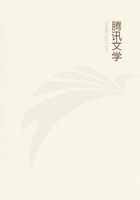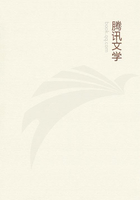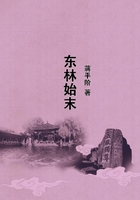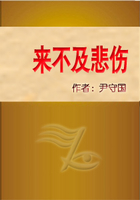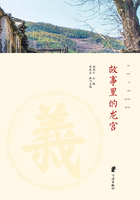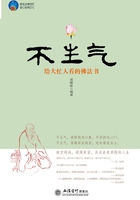But, looking more minutely into the matter, when shoots or topmost boughs are lopped from some growing thing, where goes the soul that was present in them? Simply, whence it came: soul never knew spatial separation and therefore is always within the source.If you cut the root to pieces, or burn it, where is the life that was present there? In the soul, which never went outside of itself.
No doubt, despite this permanence, the soul must have been in something if it reascends; and if it does not, it is still somewhere;it is in some other vegetal soul: but all this means merely that it is not crushed into some one spot; if a Soul-power reascends, it is within the Soul-power preceding it; that in turn can be only in the soul-power prior again, the phase reaching upwards to the Intellectual-Principle.Of course nothing here must be understood spatially: Soul never was in space; and the Divine Intellect, again, is distinguished from soul as being still more free.
Soul thus is nowhere but in the Principle which has that characteristic existence at once nowhere and everywhere.
If the soul on its upward path has halted midway before wholly achieving the supreme heights, it has a mid-rank life and has centred itself upon the mid-phase of its being.All in that mid-region is Intellectual-Principle not wholly itself- nothing else because deriving thence [and therefore of that name and rank], yet not that because the Intellectual-Principle in giving it forth is not merged into it.
There exists, thus, a life, as it were, of huge extension, a total in which each several part differs from its next, all making a self-continuous whole under a law of discrimination by which the various forms of things arise with no effacement of any prior in its secondary.
But does this Soul-phase in the vegetal order, produce nothing?
It engenders precisely the Kind in which it is thus present:
how, is a question to be handled from another starting-point.
THIRD TRACTATE.
THE KNOWING HYPOSTASES AND THE
TRANSCENDENT.
1.Are we to think that a being knowing itself must contain diversity, that self-knowledge can be affirmed only when some one phase of the self perceives other phases, and that therefore an absolutely simplex entity would be equally incapable of introversion and of self-awareness?
No: a being that has no parts or phases may have this consciousness; in fact there would be no real self-knowing in an entity presented as knowing itself in virtue of being a compound- some single element in it perceiving other elements- as we may know our own form and entire bodily organism by sense-perception: such knowing does not cover the whole field; the knowing element has not had the required cognisance at once of its associates and of itself; this is not the self-knower asked for; it is merely something that knows something else.
Either we must exhibit the self-knowing of an uncompounded being- and show how that is possible- or abandon the belief that any being can possess veritable self-cognition.
To abandon the belief is not possible in view of the many absurdities thus entailed.
It would be already absurd enough to deny this power to the soul or mind, but the very height of absurdity to deny it to the nature of the Intellectual-Principle, presented thus as knowing the rest of things but not attaining to knowledge, or even awareness, of itself.
It is the province of sense and in some degree of understanding and judgement, but not of the Intellectual-Principle, to handle the external, though whether the Intellectual-Principle holds the knowledge of these things is a question to be examined, but it is obvious that the Intellectual-Principle must have knowledge of the Intellectual objects.Now, can it know those objects alone or must it not simultaneously know itself, the being whose function it is to know just those things? Can it have self-knowledge in the sense [dismissed above as inadequate] of knowing its content while it ignores itself? Can it be aware of knowing its members and yet remain in ignorance of its own knowing self? Self and content must be simultaneously present: the method and degree of this knowledge we must now consider.
2.We begin with the soul, asking whether it is to be allowed self-knowledge and what the knowing principle in it would be and how operating.
The sense-principle in it we may at once decide, takes cognisance only of the external; even in any awareness of events within the body it occupies, this is still the perception of something external to a principle dealing with those bodily conditions not as within but as beneath itself.
The reasoning-principle in the Soul acts upon the representations standing before it as the result of sense-perception; these it judges, combining, distinguishing: or it may also observe the impressions, so to speak, rising from the Intellectual-Principle, and has the same power of handling these;and reasoning will develop to wisdom where it recognizes the new and late-coming impressions [those of sense] and adapts them, so to speak, to those it holds from long before- the act which may be described as the soul's Reminiscence.
So far as this, the efficacy of the Intellectual-Principle in the Soul certainly reaches; but is there also introversion and self-cognition or is that power to be reserved strictly for the Divine Mind?
If we accord self-knowing to this phase of the soul we make it an Intellectual-Principle and will have to show what distinguishes it from its prior; if we refuse it self-knowing, all our thought brings us step by step to some principle which has this power, and we must discover what such self-knowing consists in.If, again, we do allow self-knowledge in the lower we must examine the question of degree; for if there is no difference of degree, then the reasoning principle in soul is the Intellectual-Principle unalloyed.

